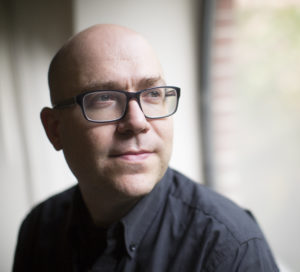
The College of New Jersey is pleased to welcome Phi Beta Kappa Visiting Scholar Alan Aspuru-Guzik, professor of chemistry and computer science at the University of Toronto, on October 1–2, 2018. Aspuru-Guzik’s lecture, “(R)evolution? The Future of Computer Simulation of Matter,” will be held on Tuesday, October 2 at noon in Education 212. The lecture is free and open to the public.
(R)evolution? The future of computer simulation of matter:
To date, the program for the development of methods and models for atomistic and continuum simulation directed toward chemicals and materials has reached an incredible degree of sophistication and maturity. Currently, one can witness an increasingly rapid emergence of advances in computing, artificial intelligence, and robotics. This drives us to consider the future of computer simulation of matter from the molecular to the human length and time scales in a radical way that deliberately dares to go beyond the foreseeable next steps in any given discipline. This talk presents a view on this future development that we believe is likely to become a reality during our lifetime.
About the speaker:
Alán Aspuru-Guzik is Professor of Chemistry and Computer Science at University of Toronto. He carries out research at the interfaces of quantum information and chemistry and machine learning and chemistry. He pioneered the development of algorithms and experimental implementations of quantum computers and dedicated quantum simulators for chemical systems. He has studied the role of quantum coherence in excitonic energy transfer in photosynthetic complexes. He has accelerated discovery by means of computation for organic semiconductors, organic photovoltaics, organic batteries and organic light-emitting diodes. He has worked on molecular representations and generative models for the machine learning of molecular properties. He is currently interested in automation and “self-driving” chemical laboratories. Amongst other recognitions, he has been recipient of the DARPA Young Faculty Award, the Sloan Research Fellowship, and was selected as a Top Innovator under 35 by the MIT Technology Review.
